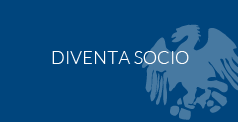Informazioni sui cookie
Questo sito utilizza cookie, anche di terze parti, per offrire una migliore esperienza di navigazione.
I cookie sono piccoli file di testo che possono essere utilizzati dai siti web per rendere più efficiente l'esperienza per l'utente e che possono essere memorizzati sul suo dispositivo se sono strettamente necessari per il funzionamento di questo sito.
Per tutti gli altri tipi di cookie abbiamo bisogno del suo permesso.
In qualsiasi momento è possibile modificare o revocare il proprio consenso dalla Dichiarazione dei cookie.
Il suo consenso ai fini dell’uso dei cookie si applica al sito web www.asseprim.it.
Dichiarazione Cookie aggiornata l'ultima volta il 04 maggio 2022.
Dichiarazione per i cookie
I cookie necessari aiutano a contribuire a rendere fruibile un sito web abilitando le funzioni di base come la navigazione della pagina e l'accesso alle aree protette del sito.
| Nome |
Fornitore |
Descrizione |
Scadenza |
Tipo |
| JSESSIONID |
asseprim.it |
Preserva gli stati dell'utente nelle diverse pagine del sito. |
Session |
HTTP |
| matomo_sessid |
matomo.youco.mobi |
Cookie di Matomo che non contiene alcun dato utilizzato per identificare i visitatori. |
14 giorni |
HTTP |
| useCookie |
asseprim.it |
Memorizza le scelte relative ai Cookies |
6 mesi |
HTTP |
I cookie statistici aiutano i proprietari del sito web a capire come i visitatori interagiscono con i siti raccogliendo e trasmettendo informazioni in forma prevalentemente, ma non esclusivamente, anonima.
| Nome |
Fornitore |
Descrizione |
Scadenza |
Tipo |
| _pk_id |
asseprim.it |
Utilizzato da Motomo per memorizzare alcuni dettagli sull'utente come l'ID visitatore univoco. |
1 anno |
HTTP |
| _pk_ref |
asseprim.it |
Utilizzato da Matomo per identificare la pagina da cui i visitatori sono arrivati sul sito per consentirci di identificare quali siti web generano la maggior parte del traffico |
6 mesi |
HTTP |
| _pk_ses, _pk_cvar, _pk_hsr |
asseprim.it |
Cookie di breve durata utilizzati da Matomo per memorizzare temporaneamente i dati relativi alla visita |
30 minuti |
HTTP |
I cookie di marketing o profilazione vengono utilizzati per monitorare i visitatori nei siti web. L'intento è quello di visualizzare annunci pertinenti e coinvolgenti per il singolo utente e quindi quelli di maggior valore per gli editori e gli inserzionisti terzi.
Cookie di "terze parti"
Questo sito consente la trasmissione al dispositivo dell’utente di cookie di terze parti in qualità di intermediario tecnico, invia tali cookie, come sopra definiti in premessa (alla sezione “QUANTI TIPI DI COOKIE ESISTONO?”) dei quali Unione Confcommercio non ha appunto né la gestione, né il controllo neanche per quanto riguarda le informazioni acquisite e di seguito riportate. Pertanto la responsabilità di mettere a disposizione e/o fornire una corretta, completa e aggiornata informativa (nonché del funzionamento dei connessi link, sotto riportati), rimane in capo alle suddette “terze parti” (ad ognuna di esse per i cookie rispettivamente generati e gestiti), le quali hanno, altresì, in totale ed esclusiva autonomia, la facoltà e la discrezionalità di decidere e modificare la denominazione, le finalità e le altre caratteristiche ed elementi di ogni singolo cookie di seguito riportati, nonché la piena discrezionalità di eliminarne alcuni di essi o tutti e/o di aggiungerne altri.
Per i suddetti cookie, quindi, si specifica che le informazioni, di seguito riportate, sono quelle disponibili ad Unione Confcommercio alla data di aggiornamento della presente informativa e vengono riportate al solo scopo di agevolare la comprensione dell’utente o interessato, e che tali informazioni non sostituiscono in alcun modo le informative che sono e devono essere fornite dalle singole “terze parti”, alle quali si rinvia e che integrano, modificano e sostituiscono quanto sotto riportato, anche in caso di eventuale contrasto. A tal proposito, si precisa che è possibile accedere alle suddette informative, rispettivamente in base alla terza parte di appartenenza, tramite gli appositi link o collegamenti di seguito riportati, collocati a fianco o in corrispondenza di ogni singolo cookie:
| Tipologia |
Nome |
Cookies |
Descrizione. |
Link alla Privacy e Cookie Policy della terza parte |
| Marketing o profilazione |
Bluekai |
bku, bkdc |
Consente di fornire pubblicità mirate su altri siti web |
Link a Bluekai |
| Marketing o profilazione |
DoubleClick |
doubleclick.net |
Consente di analizzare e comprendere le prestazioni della pubblicità sulle diverse piattaforme Google e dei suoi partner. Inoltre, questi cookie consentono di fornire pubblicità più mirate sulle diverse piattaforme Google e dei suoi partner. |
Link a Google Advertising |
| Marketing o profilazione |
Facebook |
a_user, datr, fr, lu |
Utilizzato da Facebook per fornire una serie di prodotti pubblicitari come offerte in tempo reale da inserzionisti terzi. |
Link a Facebook |
| Marketing o profilazione |
Google |
SAPISID, HSID, SID, PREF, NID, SSID, APISID |
Consente di analizzare e comprendere le prestazioni della pubblicità sulle diverse piattaforme Google. Consentono di fornire pubblicità più mirate sulle diverse piattaforme Google. |
Link a Google |
| Statistica, Marketing o profilazione |
Issuu |
iutk |
Riconosce il dispositivo dell'utente e quali documenti Issuu sono stati letti. |
Link a Issuu |
| Marketing o profilazione |
MediaMath (mathtag.com) |
uuid, uuidc |
Raccoglie i dati delle visite dell' utente sul sito internet, come ad esempio quali pagine sono state caricate. I dati registrati vengono utilizzati per pubblicità mirate. |
Link a Semasio |
| Marketing o profilazione |
Semasio |
SEUNCY |
Registra un ID univoco che identifica il dispositivo dell'utente per gli accessi successivi. |
Link a Semasio |
| Marketing o profilazione |
Tapad |
TapAd_DID, TapAd_TTD_SYNC, TapAd_TS |
Consente di fornire pubblicità mirate unendo i dati dei dispositivi a quelli comportamentali. |
Link a Tapad |
| Marketing o profilazione |
The Trade Desk (adsrvr.org) |
TDID, TDCPM |
Registra un ID univoco che identifica il dispositivo dell'utente che ritorna sul sito. L'ID viene utilizzato per pubblicità mirate. |
Link a The Trade Desk |
| Marketing o profilazione |
Twitter |
auth_token, twll, __utmz, secure_session, guest_id, __utma, personalization_id, remember_checked, remember_checked_on, lang |
Consente di analizzare e comprendere le prestazioni della pubblicità su Twitter. |
Link a Twitter |
| Marketing o profilazione |
Youtube |
SID, HSID, demographics, VISITOR_INFO1_LIVE, PREF, APISID, SSID, LOGIN_INFO, YSC, SAPISID |
Consente di analizzare e comprendere le prestazioni della pubblicità sui video di Youtube. |
Link a Youtube |







